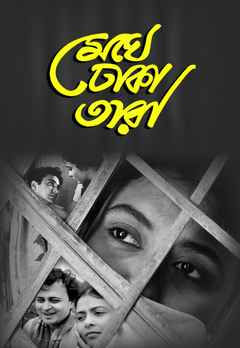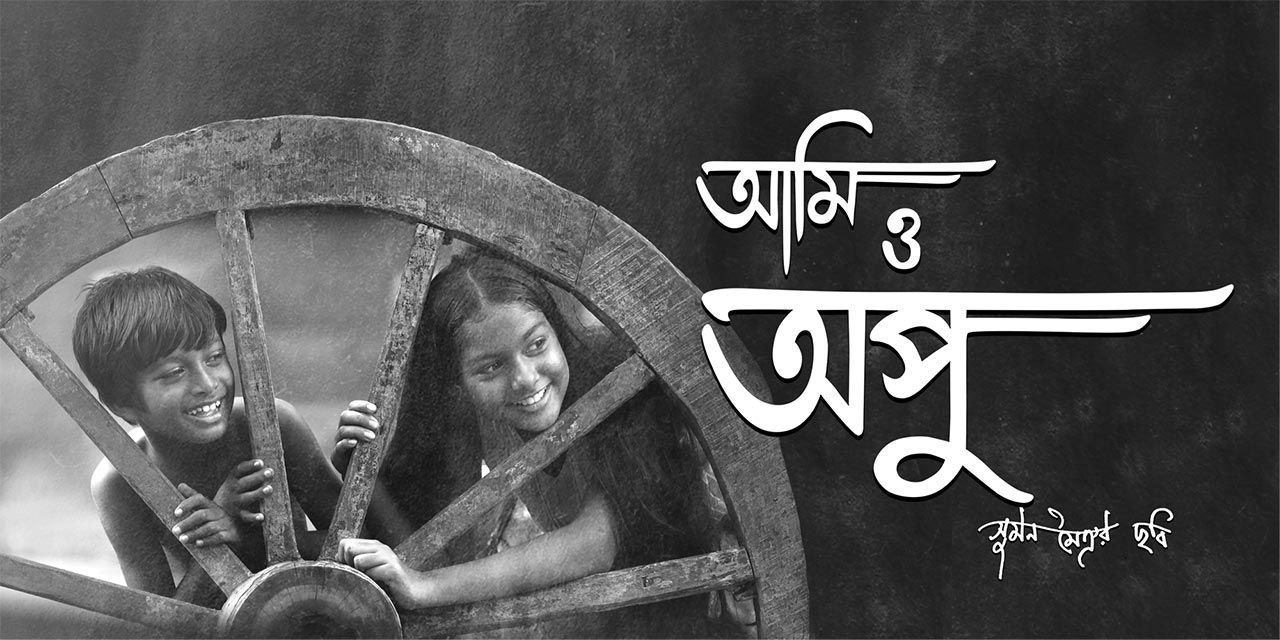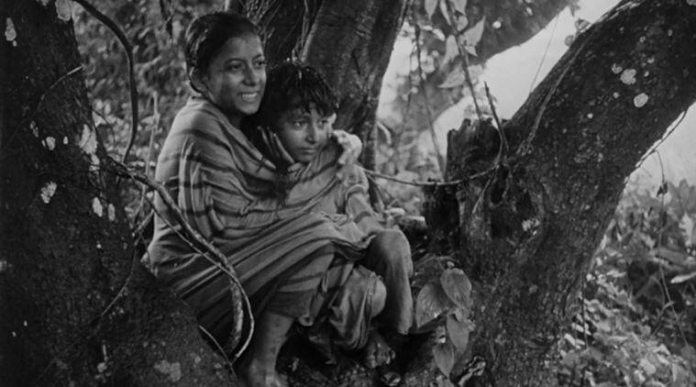In Quest of Eternal beauty of Brother and Sister Relationship in Asian Films
Sibling relationships are precarious, especially between brother and sister. On the one hand, folks have the best inside jokes, and no other person will at any point really comprehend how unusual your family is yet, your sister additionally knows precisely how to get under your skin and simply loves to remind you everything. These movies about brother- sister bonding mask all the convoluted dynamics of this particular kinship relation.
For companions might come and companions might go, yet a sister will be with you until the end of time. From being your best cherished, lifelong companions to being bigmouths in your youngsters, from being your mainstays of help in connections to being your most terrible adversaries in realities, sisters are awesome. They will battle with you over the last chicken yet loan you a portion of their kidney instantly. Such is the multi-layered nature of a brother- sister bond.
Asian movies, throughout the long term, have commended time everlasting brother-sister consideration and impacted the manner in which we outlined this relationship. From a complex Tom and Jerry battle to an easy fellowship, filmmakers have scored everything, and we can’t resist the urge to request more.
What’s more, Asian Film Industries have given us numerous motion pictures showing practically every one of the aspects of this remarkable relationship.
So check out and add these movies to your streamlining list for your next astounding sprout film night with your adored ones to praise your karma for having a sister in your life. In this way, this RakhiPurnima and following special occasion of RakshaBandhan,let’s take a glance a few famous on-screen kin who typified the magnanimity and holding related to this festival of the brother-sister relationship. The rundown of on-screen brother and sister made them grin and going after the tissue encloses equivalent measures.
Pather Pachali(1955)

The daring little girl with a sweet tooth who takes her neighbor’s fruit when no other person is to her old, slouched-over aunt home.
For a large portion of PatherPanchali, we experience Durga in her job as an older sister to her little sibling, Apu. She is his compass: the first face he sees when he gets up toward the beginning of the day, the hand that slaps him when he acquires sparkle from her toy box without asking, the tongue that sticks out and makes him grin. They accommodate each other with a feeling of having a place, a proclivity that mainly brother-sisters share. Durga appears to be strong as well as ready for anything while Apu is attracted to anything that he can push through a group and get up near. His sister’s expressions of warmth are uncovered by how delicately she switches to open the world for him. She shows him how it’s feasible to wonder at downpour and trains as well as at the quiet that expects the downpour and the before-thunder that says: here comes unadulterated speed slicing through a kaash field, abandoning us.
At the point when Durga ischewing sugarcane orgazing off — never at some irregular middle distance, yet far away, with a particular objective — she isn’t simply Durga yet a rancher. Huck Finn.A maintenance man.Wendy showing her Lost Boys the way. In the job, Das Gupta is nothing similar to the youngteen girl who made an appearance to her tryout for Ray donning pearls.
Das Gupta’s sharp depiction of keenship, which channels Ray’s gift for close perception, closely relates to seeing without being seen. She hunkers, climbs, and ducks under. She looks inside, looks left and right; she tunes in before she looks. Durga can overlay herself into a ball or similarly as fast unfurl herself and race ahead. A few bodies deceive their private manic, and Durga’s shaking brilliance — found in the relationship she sustains with her aunt and the games she envisions for Apu — makes Das Gupta’s presentation moving as well as connective. She sentimentsyou because, Durga as sister and girl is the water-skaters, the dragonflies, the lilies.She is the demonstration of dark smoke that waits afterward. She is the extras of a family compelled to continue on, the home once the house is no more. She is likewise there with Apu, a boy presently not possessing his compass however outfitted rather with a gaze that is as of now smarter. Apu proceeds, alone yet not precisely, in light of the fact that Durga is right there.
Children of Heaven (1997)

The film addresses challenges through the youngsters’ eyes which center around the consideration for each other to adapt to any friendly issues which impact the existence of their loved ones. Subsequently, the general social issue of neediness can be seen according to the viewpoint of the brother- sister’s affection.
The flick portrays the story that sisters are for sharing and sponging tears. The excursion of brother and sister shows the battle of their day-to-day endurance. The chastity of both siblings will without a doubt prevail upon you, as the adoration, care, bond, and backing they share all through the story is soul-mixing. Siblings battling with the normal sets of shoes will make you snicker and cry at a similar second.
Starting here, Majidi doesn’t reprimand the general public straightforwardly, however, he causes the crowd to notice the kids’ dreams of the circumstance since Ali and Zahra hopefully attempt to find answers for their concerns while tolerating what is happening as it is (“Children of Heaven”).
That is the reason, the film addresses not just the battles of the unfortunate Iranian kids yet in addition immaculateness and blamelessness of the multitude of kin who care for one another. Thus, Children of Heaven gives experiences into the kids’ human instincts without references to their personality and foundation.
MajidMajidi’s Children of Heaven (1997) expects to examine the intricate and all-inclusive issue of neediness with references to the particular Iranian setting and through the eyes of youngsters.
Accordingly, the film expresses that destitution can impact individuals’ life fundamentally, yet the ethical part of the kinship relation is more influential in satisfying youngsters.
Bangalore Days (2014)

Bangalore Days had an alternate story to tell. The film portrayed the excursion of three cousins. There are many such examples in the film which showed sibling’s adoration and care for a sister.
The ideal cousins Kunju otherwise known as Divya, Kuttan otherwise known as Krishnan P.P and Aju otherwise known as Arjun (played by Nazriya, NivinPauly, and Dulquer Salman individually) from Bangalore Days made everybody envy their bond. The triplet is viewed as near one another since youth and supporting each other during difficult situations. They make their fantasy of a Bangalore venture work out as expected, despite the fact that every one of them has various circumstances, and remains nearby the time.
Meghe Dhaka Tara (1960)

Ghatak can be viewed as quite possibly of the most disregarded significant movie producer on the planet. With The Cloud-Capped Star (1960), Ghatak took the drama genre alongside its reasonable, causally determined plot structures and consigned it as the setting of something a lot additionally eliminated from the ordinary Fineline. All through, the individual is fit with the socio-verifiable condition, and this duality is a critical part of the film’s achievements.
At the point when the prominent American film critic Jonathan Rosenbaum (from Chicago) presented “The Cloud-covered Star (Meghe Dhaka Tara)” by RitwikGhatak in 2012 Toronto International Film Festival, he commended it sumptuously and expressed that there is expansive agreement that this film is one of the five or six greatest melodramas at any point put on film.
She increases the pay acquired by her old aged father, while she pushes toward the last year of her schooling. Her battles are made endurable by trust, fundamentally established on two loved ones and family — her older brother Shankar, who in fact takes advantage while trusting that his singing vocation will bloom, and her expecting life partner, Sanat, who seeks after his Ph.D. as a component of a promising future. Fluctuated relatives respond in various entrepreneurial ways to their decreased status, and their need to get by, all of which negatively affects Neeta, who eventually turns into the family’s only income provider.
Neeta penances everything for her family, including her own joy, her cash, and her wellbeing, while her accomplishments are scarcely at any point perceived by individuals around her. The exhibition all through is amazing – SupriyaChoudhury as Neeta is bolting.
RitwikGhatak presents an outwardly radiant, eccentrically overripe, yet provocative and profoundly private record of neediness, frustration, and exile in The Cloud-Capped Star. By interplaying light and shadows and consolidating reminiscent, forceful sounds that highlight profound effect and comedic tone, Ghatak makes an exceptional, sensorial experience that narratives the deliberate unsettling of the human spirit: the dreamlike, premonition shot.
the differentiated picture of Neeta – first, enlightened before a latticed window as she peruses Sanat’s letter and later, covered behind the window after Shankar’s return; the sound of lashing as Neeta and Shankar sing a melancholic Rabindranath Tagore melody (bringing out Raskolnikov’s fantasy on weight and obligation in Fyodor Doestoevsky’s Crime and Punishment).
A moral story for the horrible outcomes of the segment of Bengal, The Cloud-Capped Star catches the deterioration of a Bengali working class family because of separation, neediness, personal circumstance, and insignificant, inside division. The rehashed symbolism of a passing train bisecting the skyline suggests the actual division of the family’s familial country. Definitely, as Neeta endeavors to recover from the desolates of forbearance, need, and double-dealing, her cry of misery turns into an unclear, resounding reverberation from the lost and hopeless soul of a dislodged and evacuated individuals.
When two brother and sister met each other and Shankar sat beside Neeta, there was a high scale sound of wind and that mixed with bell ringing. It might create mixed feeling to audiences. It creates meaning of hyper reality as well. It is allegoric comparison of endangerment and an alarm sign of last meeting. In later, director used flute and background musical vocal to create sadistic helplessness. There was also sound of dry leaves in the conversation period that added extra means of feeling. There was also used another tune of musical string instrument that might give audience a feeling of straight emotion of complexity of dialectical reality. Then it turns into emotion of aspiration of life through high scale sadistic vocal tune with the sound of thunderbolt and using musical string instrument. The sound of thunderbolt might be added as symbolic comparison of human incapacity in natural rule. There was a sound of cricket in parallel way to hint audience for dark fate in cinematic reality.
There is essentially no space for elevated beliefs or wistful benevolence on the globe made here – grieve what one unquestionable necessity, and do how one should get by. Feeling and beliefs are – in this film – extravagances, and from the remorselessness of such a cliché, Ghatak has made one of film’s perfect, essential misfortunes.
Ghatak guaranteed not many Western realistic impacts. Like Jean-Luc Godard in France and NagisaOshima in Japan, his essential worries were verifiable and political, and furthermore specialized – how to adjust film to communicate those worries in open language? For Ghatak the arrangement was tracked down in utilizing outside areas, regular sound, peculiar altering, and at least the glimmer found in Bollywood or Hollywood. Cloud-Capped Star is a grim, totally grasping, grievous and rankling. As show, it would rank as one of the more dark worldwide works of art out there, seldom seen or remarked upon.
Sarbjit (2016)

Sarabjit is a trajectory of two battles. One is an Indian man’s battle to get by in Pakistan subsequent to being imprisoned for crossing the land boundary accidentally. The other is a sister’s battle to defend her brother and bring him back home. The story is lamentable and tragic.
The story is outlined on the existence of Sarbjit’s real-life sister DalbirKaur, she gives her best for getting him out of prison. The film exhibits a tragic story of a brother-sister and pushes to inform us how sisters can cherish their siblinghood unceasingly and both can share a warm bond.
The strong exhibitions by AishwaryaRaiBachchan and RandeepHooda make this film a must-watch.
Fiza (2000)

The film stands on a sister’s journey to find her brother, ignoring that his urgency has driven him to risky waters.
Fiza directed by Khalid Mohamed featured KarishmaKapoor and had terrorism in Kashmir and the 1993 Mumbai riots as its scenery. Fiza attempts to find her sibling Amaan who vanished in the mobs in Mumbai. To find and save her brother Amaan, Fiza goes to any degree she can. Indeed, even unexpected gap couldn’t diminish the adoration between the two. With dazzling exhibitions by KarismaKapoor and HrithikRoshan, this was a brother – sister film for the ages.
Their bereaved mother is hopeful that her child is aliveThe mother and little girl are continuously pondering where could brother be? Fiza will not grapple with that her brother is dead and she puts forth every conceivable attempt to follow him and see whether her adorable brother is in any condition.
My Brother… Nikhil (2005)

At the point when the discussion around STD and sexuality was definitely more repressed than contemporary time, My Brother…Nikhil in 2005 recounted the narrative of a sister battling for her sibling’s all-in-all-correct nobility. Indeed, even as the world disregards Nikhil for his sexuality and his unexpected issues, Anamika, played by JuhiChawla, transforms into his anchor.
Dhanak (2015)

Dhanak directed by NageshKukunoor is a blooming film about a kid girl who is attempting to get her brother’s vision back. The film exhibits the boldness of 10-years of age sister Pari and her guts to travel solo to keep promise. She is so devoted to her objective and words. The duo travel solo all through the desert. This portrayed their delightful and cherishing relationship.
After little Pari sees a banner of Shah Rukh Khan advancing eye gift, she takes her outwardly impeded little brotherChotu, to his shooting place in Rajasthan, expecting his treatment.
Iqbal( 2005)
![Iqbal Songs Lyrics & Videos [All Songs List]- LyricsBogie](https://www.lyricsbogie.com/wp-content/uploads/2015/06/Iqbal-2005-218x300.jpg)
The unconditional supporting nature of Shweta in the whole flick proves that a sister can be real companion, a partner in crime and sometimes a responsible lady. The movies also star Naseeruddin Shah, GirishKarnad, YatinKaryekar and PrateekshaLonkar, among others.
This film demonstrates a line which peruses, “Sisters are consistently your ally, regardless.”

After a long hole, SumanMaitra is good to go for the arrival of his next film ‘Aami O Apu’. It’s clearly an overwhelming undertaking for the captain of the ship , particularly when this film is a cutting edge take on the famous ‘PatherPanchali’ by Satyajit Ray. In addition, each Bengali is high on feelings when things are connected with Ray and his manifestations. Suman’s film likewise centers around new understandings of the artistic works of Jasimuddin, Jibanananda Das and Rabindranath Tagore close by BibhutibhusanBandopadhyay.
The story rotates around Apu and Durga that portrays love and harmony. The family’s difficulty features the closeness of the brother and sister through sharing mysteries and giving each other the common help underlining on the virtues in an aesthetical rural backward, as life in an unfortunate Bengali town meanders aimlessly.
IshanRana is assuming the part of Apu, a rakhal in the film while PrakritiPujari plays Durga’s personality. SoumitraGhosh, AnandaChoudhuri, Amrita Halder, SushilSikaria, DhrubaDebnath and others has featured in other significant jobs in the film.
Written by: Rafsun Ahmed
 a Media and Communication graduate from IUB who is interested in Anthropology and South Asian Studies
a Media and Communication graduate from IUB who is interested in Anthropology and South Asian Studies




